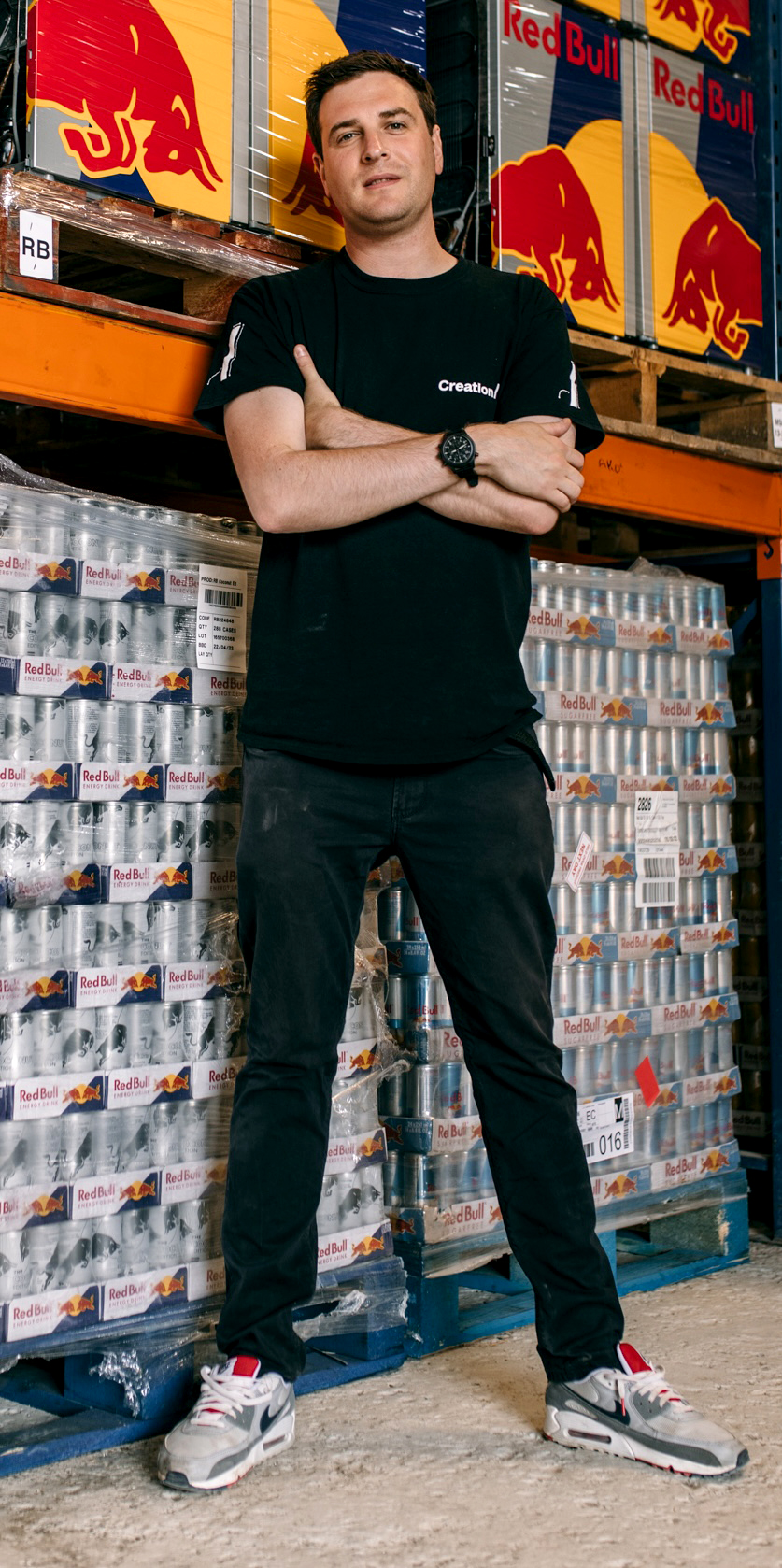UK Small Exporters Show Optimism in Overcoming Tariff Challenges
In the aftermath of Brexit, the COVID-19 pandemic, and ongoing tariff threats from the United States, small businesses in the UK are becoming increasingly innovative in their pursuit of export sales, with emerging markets offering promising opportunities.
Siblings Vivien and Howard Wong, founders of Little Moons—a Japanese-style mochi ice cream company—have focused on international markets since starting their business in 2010, maintaining a positive outlook despite numerous obstacles.
“Industry experts often advise businesses to concentrate on their domestic market before venturing internationally, as it can be time-consuming,” said Howard, 40. “We deviated from that approach, treating it like a race to get our products on shelves.”
The Wongs, hailing from northwest London, began by introducing their gelato-filled mochi to renowned restaurants in the UK and abroad, including Nobu. “We noticed the increasing popularity of Japanese cuisine in the UK, which mirrored trends in Europe and the Middle East,” shared Vivien, 45.
With assistance from the Department for Business and Trade, the Wongs participated in international trade shows. “It was truly enjoyable—like embarking on a series of adventures,” Howard remarked.
From the start, they were deliberate in crafting their strategy for international markets. “Our goal is to build a brand rather than simply shipping products,” Vivien added.
Little Moons, which generates annual revenues of £53 million and employs over 400 individuals, currently exports to 36 countries, serving both restaurant and supermarket customers.
“It’s a challenging endeavor. There’s considerable paperwork involved, and establishing a presence in new markets takes time, but it’s undoubtedly rewarding,” Vivien noted.

The company is pushing forward with plans to expand into the Middle East, and the Wongs also eye potential markets in Southeast Asia, China, and possibly Japan, the birthplace of mochi.
Despite the looming threat of US tariffs, Howard mentioned they are exploring opportunities with potential customers in the US. “The tariffs add uncertainty, but they also highlight the significant opportunities available there.” According to the Office for National Statistics (ONS), UK exports to the US increased for the third month in a row in February, reaching £5.9 billion, the highest since November 2022.
However, the British Chambers of Commerce (BCC) cautions that the overall situation for small and medium-sized enterprises (SMEs) remains less optimistic, with many reporting declining exports compared to pre-pandemic and pre-Brexit levels.
Only 12% of the 2.8 million SMEs registered with the Department for Business and Trade are currently engaged in exporting, according to recent statistics, reflecting the challenges in previous government efforts to boost export activity.
The BCC’s latest trade confidence survey, which analyzed feedback from over 1,800 exporters, indicated a “depressed” outlook among SMEs trading internationally with regards to export growth, even before the introduction of tariffs by the Trump administration on April 2.
During the first quarter of the year, only 20% of SMEs reported an increase in international trade, while over 25% experienced a decline.
William Bain, head of trade policy at the BCC, remarked, “Uncertainty regarding US trade policies likely impacted SME export activity early in the year.” The forthcoming government trade strategy should aim to enhance support for businesses in the export domain, including improved financing options. Helping firms discover new paths to market will likely be part of the solution.
The US remains the largest market for UK exports, with goods valued at over £179 billion in 2023, accounting for 21.2% of total goods and services exports—substantially surpassing Germany, which holds 7% of the market. Notably, emerging markets are experiencing rapid growth in their demand for UK goods. Exports to North Macedonia surged by 245% to £1.7 billion from 2013 to 2023, while exports to Vietnam increased by 164% to £1.3 billion; Taiwan rose by 125% to £4.4 billion, and Qatar expanded by 117% to £5.6 billion.
Tina McKenzie, policy chair of the Federation of Small Businesses (FSB), emphasized, “The landscape is already challenging for small firms looking to export. Nevertheless, the potential benefits are vast, enabling them to access new markets and diversify revenue streams.”

Advice from experienced exporters highlights that it is never too early to consider international trade, to participate in trade fairs, and to take advantage of government support initiatives.
Julianne Ponan, founder and CEO of Creative Nature, a producer of allergen-free foods, expressed her affinity for exporting. “I’m currently in Hamburg attending a trade show to promote our products to airlines,” she said.
Creative Nature derives about 20% of its sales from exports, with the Middle East identified as its fastest-growing market. “Brexit drove us to consider more distant markets like the Middle East and Australia, as logistical barriers arose for Europe, prompting us to seek alternatives,” she explained.
If she were to launch another business, she would prioritize exporting from day one.
Sean Ramsden, CEO of Ramsden International, manages the export of numerous British goods to over 100 countries. “We excel particularly in smaller, unconventional markets,” he remarked.
Ramsden International, a family-run business based in Grimsby, Lincolnshire, exports products from more than 600 British manufacturers, with popular items including chocolate, shampoo, and pet food. “We have a significant presence in markets that manufacturers often overlook, like Bolivia, and we also find the Caribbean market crucial due to its numerous small retailers,” he noted.
As a company that relies entirely on export sales, Ramsden voiced concerns regarding the possibility of a broader trade conflict but observed that bureaucratic hurdles typically pose greater challenges than the flat 10% tariff imposed by the US. “I’m hopeful that this trade tension could eventually lead to lower tariffs,” he added, noting EU discussions about potential zero-for-zero tariffs, which would greatly benefit trading conditions.

Tom Whittle, co-founder of the events firm Creation, already produces most of its events for international clients and plans to extend operations to the Far East, the Middle East, and the US. “Our primary focus is Japan, where we have built solid relationships, but we foresee expands to other Asian nations and Saudi Arabia as well,” he stated. “Our goal is to continue innovating in the events sector worldwide.”
Creation has secured a position in the Sunday Times list of the 100 fastest-growing companies for three consecutive years, reporting a profit of £1.9 million from revenues of £15 million last year.
The company is involved in designing and producing events for major brands like Red Bull, AB InBev, Bacardi, and Asos during high-profile events such as Wimbledon and Formula 1 races.
Whittle remarked on the trade war, saying, “Where others see disaster, I perceive opportunity. We are more agile and adaptable.” He concluded by highlighting that generating demand in challenging environments relies on providing clients with “fresh ideas.”
Part 2: The entrepreneurs breaking into the United States market.




Post Comment